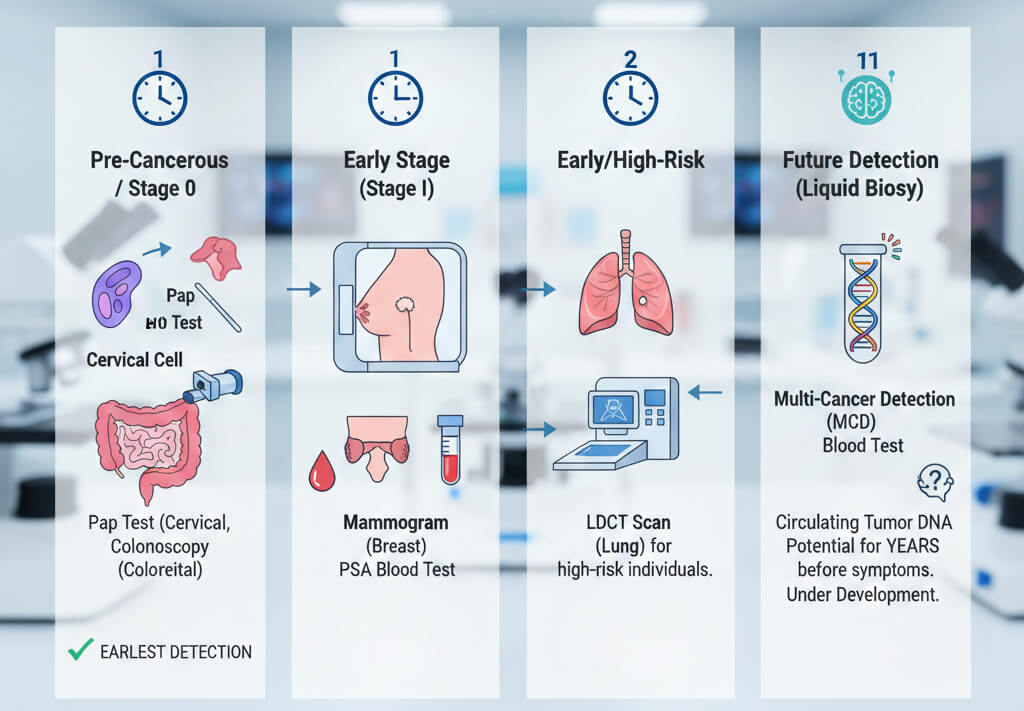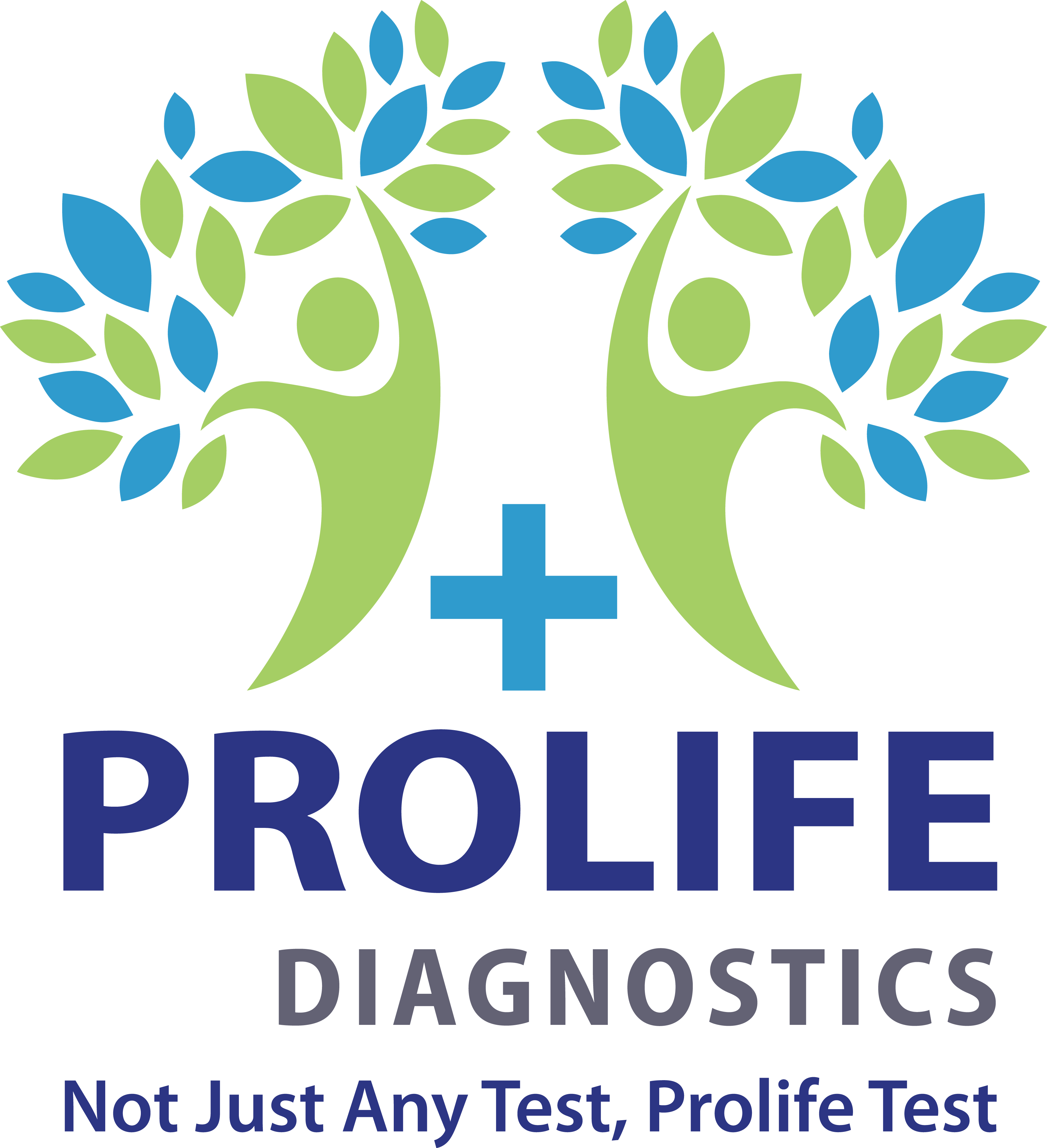- Plot No. 361/3074 & Plot No 437/3134, Patrapada, BBSR
- +91 9040017001
- +91 8630400500
How Early Can Cancer Be Detected Through Diagnostic Tests?
Understanding the Silent Fear Every Patient Faces
For many people, the word “cancer” immediately evokes fear, uncertainty, and confusion. One of the most common questions patients search online is:
“Can cancer be detected early?”
The honest answer is: Yes, in many cases, cancer can be detected at a very early stage through proper diagnostic tests. Early detection can mean the difference between simple treatment and complex medical procedures – or even between life and death.
But the real challenge? Most early-stage cancers do not show obvious symptoms. That’s why relying only on how you “feel” can be risky.

Why Early Cancer Detection Matters So Much
When cancer is detected early:
- Treatment becomes less aggressive and more effective
- Survival rates increase significantly
- Cost of treatment remains manageable
- Quality of life is preserved
However, when diagnosis is delayed, patients often face advanced-stage cancer that requires intensive therapy, surgeries, and prolonged recovery.
This is where advanced diagnostic testing plays a lifesaving role.
How Diagnostic Tests Detect Cancer Before Symptoms Appear
Modern medical diagnostics can identify abnormalities long before physical signs become visible. These tests detect:
- Abnormal cell growth
- Changes in tissue structure
- Elevated tumor markers in blood
- Genetic mutations linked to cancer
Early detection works on a simple but powerful principle: find the disease before it harms the body.
Key Diagnostic Tests That Help in Early Cancer Detection
1. Imaging Tests
Imaging plays a crucial role in identifying suspicious growths at their earliest stages.
Common imaging tools include:
These tests can reveal:
- Small tumors
- Unusual tissue changes
- Hidden masses in vital organs
If your doctor suspects internal abnormalities, they may recommend advanced imaging similar to what’s discussed in our guide on MRI scan uses or mammography for early detection.
2. Blood Tests & Tumor Markers
Certain cancers produce substances called tumor markers that can be detected in blood tests. These help identify:
- Risk of cancer
- Treatment progress
- Possibility of recurrence
Routine blood tests can also reveal unusual patterns that signal further evaluation is required.
3. Biopsy – The Confirmatory Test
When an abnormality is found, a biopsy confirms whether the growth is cancerous or benign. A small tissue sample is examined under a microscope to provide a definitive diagnosis.
Common Early Cancer Warning Signs Patients Ignore
Many patients delay testing due to ignoring symptoms like:
- Persistent fatigue
- Unexplained weight loss
- Long-lasting cough
- Unusual bleeding
- Changes in bowel or bladder habits
- Non-healing sores
These signs often align with issues discussed in our post on common symptoms you shouldn’t ignore, highlighting why timely testing is essential.
Who Should Prioritize Early Cancer Screening?
Early detection is not only for people with symptoms. It is recommended for:
- Individuals with a family history of cancer
- Smokers and alcohol consumers
- People above 40 years
- Patients with chronic illnesses
- Women and men requiring routine screenings
You may also explore screening importance through related topics like cancer screening after 40 and breast cancer screening guidelines for a deeper understanding.
The Emotional Side: Patient Fear vs Medical Reality
Many patients avoid testing due to fear of bad news. Unfortunately, this silence often leads to late-stage diagnosis. The reality is:
Early testing doesn’t create cancer – it reveals it when it is still treatable.
Taking control through screenings is a proactive step toward better health, not a sign of weakness.
How Prolife Diagnostics Supports Early Cancer Detection
At Prolife Diagnostics, early cancer detection is supported by:
- Advanced imaging technology
- Highly accurate pathology services
- Experienced diagnostic professionals
- Fast and reliable reporting
Our aim is not just diagnosis, it is early intervention and prevention.
You can also explore how our services support cancer diagnosis in our related article on reliable cancer biopsy tests for informed decision-making.
When Should You Get Tested?
Do not wait for symptoms to become severe. Consider testing if:
- You feel persistent discomfort
- You belong to a risk group
- Your doctor advises routine screening
- You want preventive health assurance
Early testing is an investment in peace of mind and long-term wellness.
Final Thoughts: Early Detection Saves Lives
Early detection through diagnostic tests transforms cancer from a life-threatening condition into a manageable medical concern. With the right screenings at the right time, patients gain greater control over their health outcomes.
If you’re unsure which tests you need, consult your doctor for proper diagnosis, treatment, and medical guidance, and begin your journey toward preventive care.
Disclaimer
This content is for general awareness and informational purposes only. It is not a substitute for professional medical advice. Always consult your doctor for proper diagnosis, treatment, or medical decisions related to your health condition.
Cancer Awareness and Prevention Tips
👉 4 Early Signs of Colon Cancer You Should NEVER Ignore!
👉 Kidney Cancer: Everything You Should Know
👉 Where to Get Reliable Cancer Biopsy Tests in Bhubaneswar
👉 Cervical Cancer Screening: Importance of Pap Smear and HPV Tests
👉 Thyroid Cancer Awareness: Know the Signs and Screening with Prolife Diagnostics
